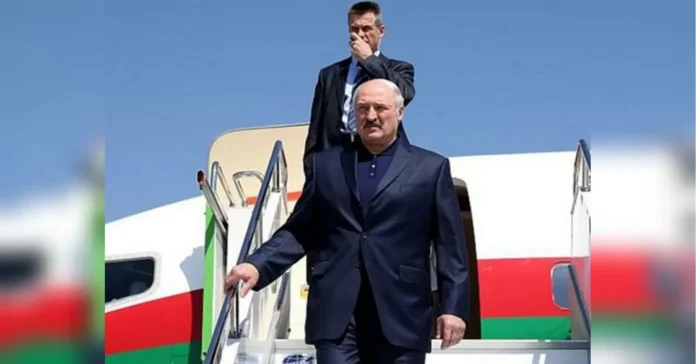In recent years, the aviation industry in Russia and Belarus has faced a number of challenges, particularly in the form of sanctions imposed by Western countries. These sanctions have had a significant impact on the industry, causing a ripple effect that has affected not only the economies of the two countries, but also the safety of air travel.
One of the most vocal critics of these sanctions is Russian aviation expert Roman Svitan. In his recent statements, he has claimed that the sanctions have led to a dangerous situation in the aviation industry, where planes are becoming increasingly unsafe to fly. According to Svitan, this is due to the inability of Russian and Belarusian airlines to access crucial equipment and spare parts for their planes, as well as the lack of investment in airline safety measures.
The sanctions in question were first imposed in 2014, following the annexation of Crimea by Russia. In response, Western countries, including the United States and the European Union, introduced a series of economic sanctions aimed at restricting the access of Russian and Belarusian companies to the international market. This has had a direct impact on the aviation industry, as Russian and Belarusian airlines are heavily reliant on Western technology and equipment.
One of the main areas that have been affected by these sanctions is the maintenance and repair of aircraft. With limited access to spare parts and technical assistance from Western companies, Russian and Belarusian airlines have been forced to rely on older, more outdated equipment. This, in turn, has led to a decrease in the safety of planes, as they are more prone to malfunctions and breakdowns.
In addition, the sanctions have also hindered the ability of Russian and Belarusian airlines to invest in safety measures. With their access to international funding and resources restricted, airlines have been unable to upgrade their safety systems and implement modern technologies that could make air travel safer.
The consequences of these sanctions have been dire. According to Svitan, there has been a sharp increase in the number of air accidents and near-misses involving Russian and Belarusian planes in recent years. These incidents have not only put the lives of passengers and crew at risk, but also damaged the reputation of the aviation industry in these countries.
Furthermore, the impact of these sanctions goes beyond just the safety of air travel. The aviation industry plays a crucial role in the economies of Russia and Belarus, contributing significantly to their GDP and providing employment to thousands of people. With the industry facing such challenges, there has been a decline in air traffic and a decrease in revenue for airlines, leading to job losses and economic instability.
The situation has become so dire that even the International Civil Aviation Organization (ICAO) has expressed concern over the safety of air travel in Russia and Belarus. In a recent report, the ICAO highlighted the need for urgent action to address the issues faced by the aviation industry in these countries.
In light of these developments, it is clear that the sanctions imposed on Russia and Belarus have had a detrimental effect on the safety and stability of the aviation industry. It is crucial for the international community to reconsider these sanctions and work towards finding a solution that does not compromise the safety of air travel.
In conclusion, the words of Roman Svitan serve as a stark reminder of the consequences of political tensions on the aviation industry. The sanctions imposed on Russia and Belarus have not only affected their economies, but also put the safety of air travel at risk. It is time for the international community to come together and find a resolution to this issue, to ensure the safety of passengers and the sustainability of the aviation industry in these countries.

